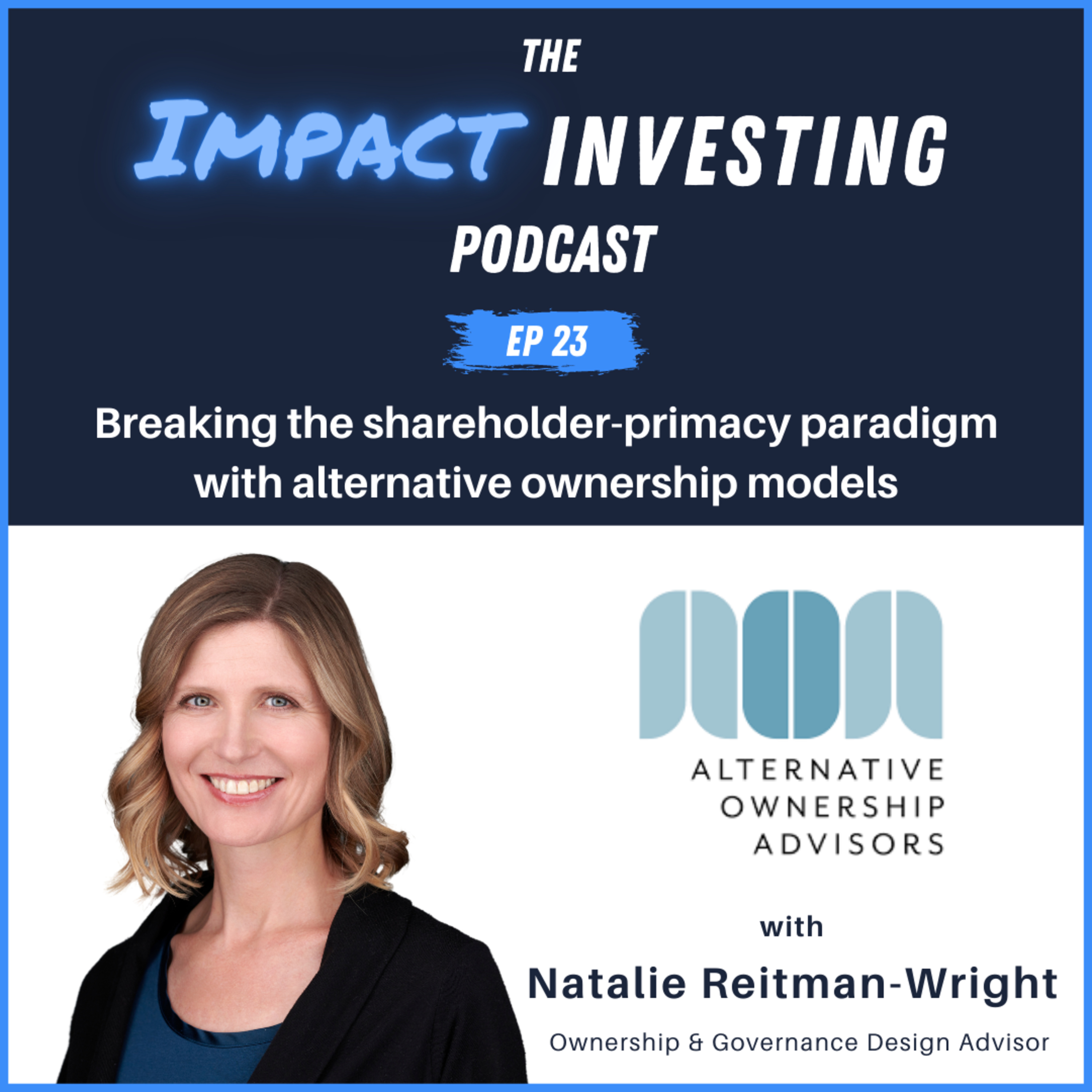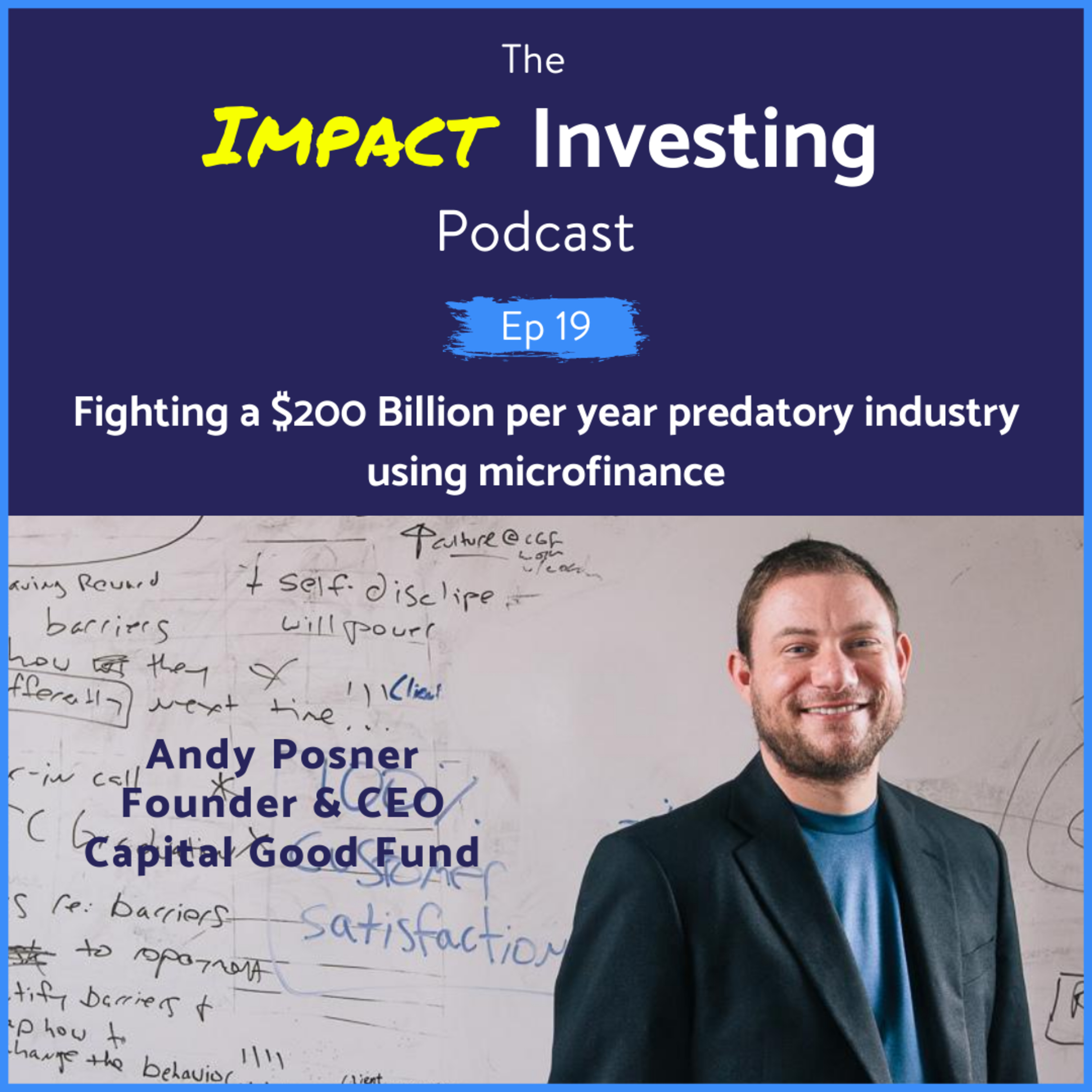Welcome to episode 23 of the Impact Investing Podcast.
The idea of discussing ownership and legal structuring of businesses may not sound super exciting at first blush. However, it’s a vitally important topic, especially for impact businesses. The issue founders must contend with is, how do they protect the purpose/values of their business as it grows and brings on new staff, clients, suppliers, and most importantly, investors? Investors are particularly problematic given the prevalence of the shareholder-primacy paradigm which dictates that company executives seek to maximize shareholder value above all else. How do we avoid the pitfalls of Capitalism’s relentless pressure for profit growth from distracting us from our core purpose?
That’s what today’s guest is here to explore with us today. Natalie Reitman-White is Ownership & Governance Design Advisor with Alternative Ownership Advisors. Natalie’s firm is a Stewardship Ownership consultancy that works with impact businesses to think about alternative legal structures that can embed a company’s purpose into its organization structure, governance, and financing.
During the episode, Natalie and I discuss the origins of Alternative Ownership Advisors and how it got its start when Natalie was running an organic food producer and had difficulty finding answers to her questions in pursuit of a more suitable legal structure. We then dive into the details of how Alternative Ownership Advisors helps business owners. We dive into the details of various legal structures, examples of businesses that have utilized them, and discuss how these models solved the challenges of protecting their purpose and values. And be sure to stay tuned to the very end where we talk about the types of businesses that are best-suited for considering an alternative ownership model like a perpetual ownership trust.
You can learn more about Alternative Ownership Advisors by visiting its website or its LinkedIn page. Also mentioned during the show were Natalie’s original sustainable food business Organically Grown and the website The Purpose Economy.










